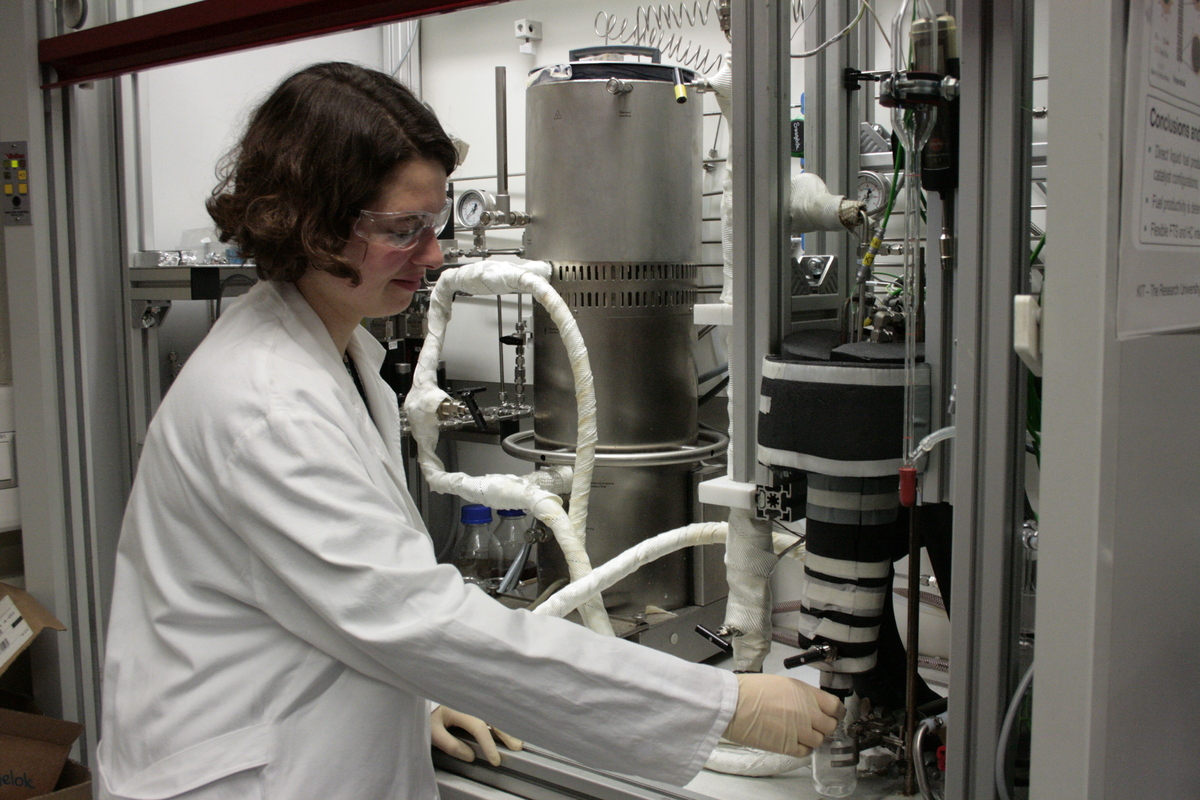PhD position in the field of energy and environmental technology
According to international climate policy, global warming is to be limited to a maximum of 2 °C by 2050 compared to pre-industrial levels. The conversion of renewable electrical power into CO2-neutral chemical energy sources can help to achieve this goal. The KIT, too, makes substantial research contributions in this direction. Research, teaching, and innovation at KIT support the energy turnaround and the restructuring of the energy system in Germany. Clear priorities are energy efficiency and renewable energies, energy storage and grids, electromobility, and the expansion of international research cooperation.
One approach is the so-called "power-to-fuel technology" (P-to-X). This can help to realize the transport sector's switch from fossil fuels to CO2-neutral fuels. Liquid fuels will continue to play an important role in the transport sector in the future, alongside other alternatives such as e-mobility and hydrogen, especially for heavy goods vehicles and air traffic. Synthetic hydrocarbons, which are essentially free of sulfur and other pollutants, significantly outperform their fossil counterparts in terms of air pollution and can also be customized to improve combustion behavior.
With the kind support of the Peter and Luise Hager Foundation, a PhD position in the field of energy and environmental technology was established at the KIT Institute for Micro Process Engineering (IMVT) in 2015. The PhD position "Green Synthetic Fuels via the Path 'Power to Fuels' - Process Integration for Compact Modular Systems" is closely linked to the scientific activities that KIT is conducting in the Helmholtz Program "Storage and Networked Infrastructures" and within the Helmholtz Initiative "Energy System 2050".
The project focuses on the production of synthetic fuels from renewable electrical energy and carbon dioxide via the process route of integrated Fischer-Tropsch synthesis and hydrocracking. The sources of carbon dioxide can be industrial waste gases or air, for example. The goal is to broaden the understanding of the integrated process in order to derive optimal operating conditions with regard to the quality of the synthetic fuels.
KIT Energy Center
has 1250 employees and is one of the largest energy research centers in Europe. It combines the energy research activities of KIT and renowned cooperation partners. In doing so, it crosses disciplinary borders and combines fundamental and applied research on all relevant energies for industry, households, services, and mobility. The participating institutes and research groups carry out the research work independently. By bringing topics together, scientists working together on an interdisciplinary basis, and equipment and facilities that are jointly used by, among others, large-scale research, a new quality of research and teaching is created. The KIT Energy Center develops energy technology solutions from a single source and acts as a competent contact for politics, business, and society in energy issues. Further information is available at http://www.energie.kit.edu/
Die KIT-Stiftung dankt der Peter und Luise Hager-Stiftung für ihr großes Engagement.

